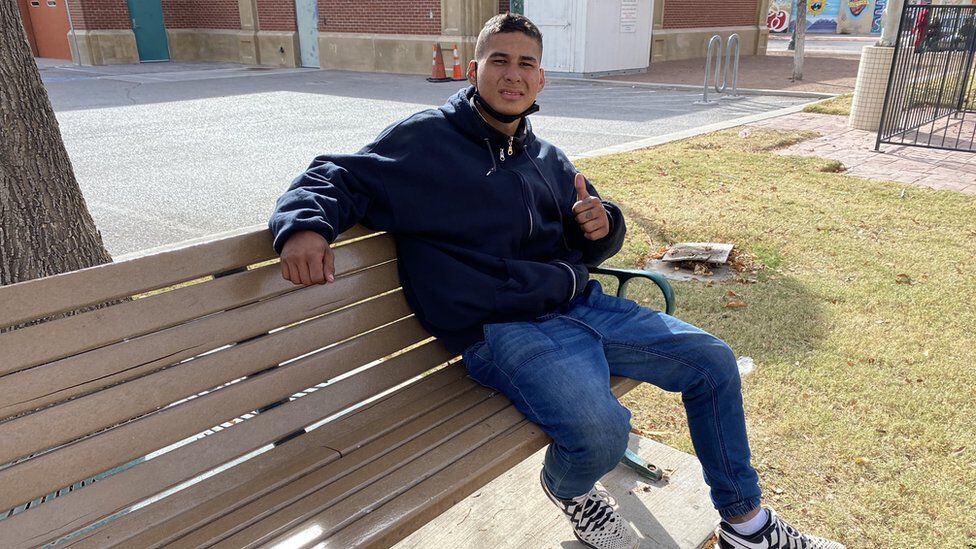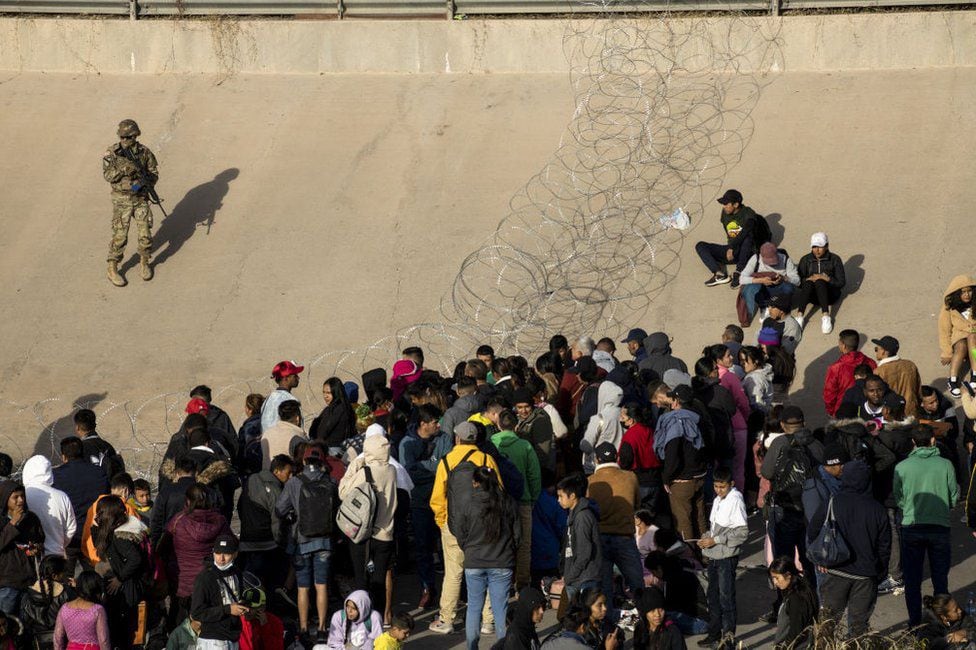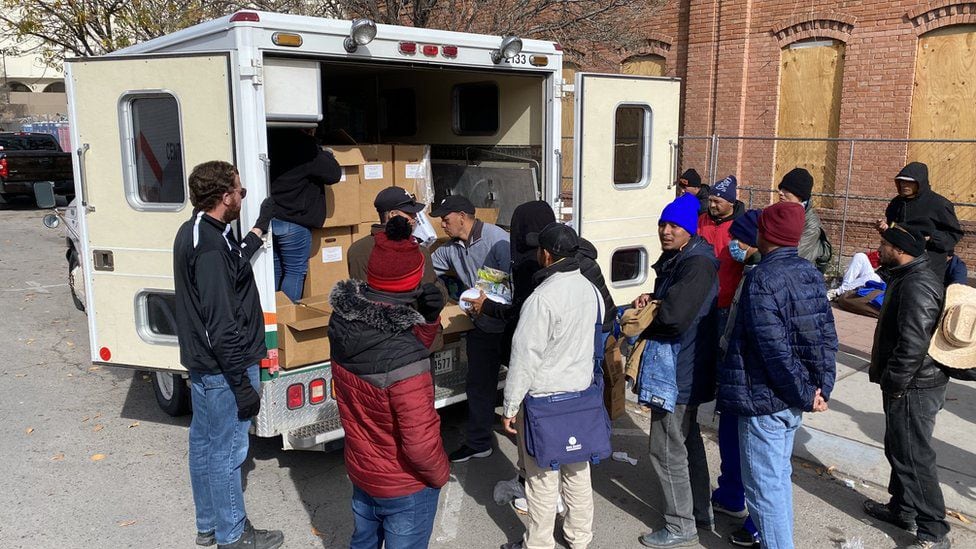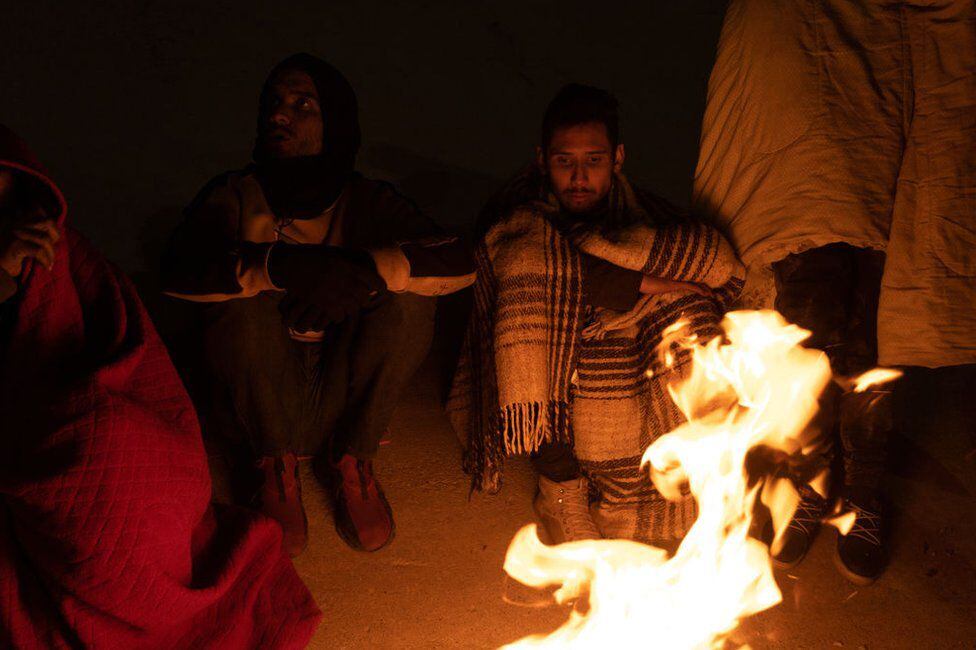El Paso, a Texan border city with Mexicofaces a growing “humanitarian crisis” awaiting a change in immigration policy that has migrants from Latin America on the other side of the fence.
The call Title 42, which was created during the government of Donald Trump and gives the Executive the power to automatically expel the undocumented, could be withdrawn in the coming days.
SIGHT: The uncertainty of the migrant caravans waiting for the end of Title 42 at the US-Mexico border.
It has prevented thousands of people from crossing the US-Mexico border.
The policy was supposed to expire this Wednesday, December 21, but the Supreme Court left it temporarily on hold.
On Monday Chief Justice John Roberts temporarily blocked its end pending a ruling on an emergency appeal filed by a number of Republican-led states calling for the policy to remain in effect.
On Tuesday, the Biden administration urged the Supreme Court to ignore the Republican-led petition to keep Title 42 in effect, arguing that it can no longer be justified.
But it also asked him to delay the end of that policy until at least December 27, to prepare for the expected influx of immigrants.
If management gets what it wants, the policy will expire on December 27.
However, court intervention matters little on the streets of El Paso, where shelters and humanitarian services are already being overstretched and Tired migrants sleep outdoors during some very cold nights.
Dozens of migrants, including women and children, were sleeping on the floor of the main bus terminal in downtown El Paso Tuesday afternoon.
Although the majority were Nicaraguans and Venezuelans, they also included citizens of other Latin American countries.

The experience of Dylan Torres Reyes, a 21-year-old Venezuelan, is typical of many of the migrants now in El Paso.
After an arduous two and a half month journey through South and Central AmericaDuring which he risked his life traversing jungles, confronting corrupt policemen and suffering racist abuse, Dylan spent three nights sleeping on the pavement near the bus station.
He hopes to make it to Chicago, where he has relatives.
“I have no idea how I’m going to get there. I’m trying to get bus tickets, but I don’t know how we’re going to do it,” he told the BBC in a nearby park.
“But I’m happy to be here. The treatment here has been excellent. It’s just very, very cold“.
While city officials say they are doing everything they can to help house and transport the migrants CBP releases every day, the growing numbers have strained resources.
In the week ending December 18 alone, more than 10,300 were released in the city (after being turned over to Border Patrol), compared to 8,000 released the previous week.

If Title 42 were to be lifted, federal and local officials estimate that the number of daily arrests would rise from 1,500 to a between 4,000 and 6,000, something unmanageable for the city with the resources it has.
“It’s not manageable. Shelters and community efforts have been overwhelmed,” Fernando Garcia, executive director of the Border Network for Human Rights, told the BBC.
“We have a problem, and we have it right now.”
“We can’t wait to see if Title 42 is over or not,” he added. “Right here, right now, we have people in El Paso on the streets. Children, women, without winter clothes, without food, without water and without money for transportation that will take them to where their relatives are.
State of emergency
On Sunday, El Paso Mayor Oscar Leeser, a Democrat, declared the state of emergency for seven dayswhich he said would give municipal authorities the resources to deal with the flow of migrants who are sleeping on the city’s streets.
“We want to make sure they are treated with dignity,” he told reporters. “We want to make sure everyone is safe.”
On Monday, Leeser warned that the city’s shelters were already full, with an estimated 20,000 more migrants across the border prepared to cross into the US if policy changes.
The mayor vowed to be “prepared for whatever comes” and said city officials are still drawing up emergency plans, including the conversion of large buildings into makeshift shelters and the rental of buses to transport migrants to other Texas cities.
However, much of the day-to-day work of helping migrants has fallen to a handful of NGOs and activist groups.

One such organization, the El Pasoans Fighting Hunger food bank, has been feeding dozens of migrants in different parts of the city.
“This is a humanitarian crisis, absolutely”said its executive director, Susan Goodell. “The number of migrants in our community is incredible. I have never seen numbers like these.”
While Goodell says his organization has managed to comply so far, he acknowledges that it is having trouble continuing to do so and has asked other parts of the country for help.
Empathy
Residents in and around downtown El Paso told the BBC that the influx of migrants has been inescapable in recent days.
Some spoke of a constant noise at night, from crowded bus stationsor how, when leaving their houses in the morning, they found someone sleeping next to the door or near their vehicles.
Many of the residents of the area – in which almost a quarter of the population was born in another country – expressed their sympathy for the migrants who are going through such a difficult situation.

“They’re just trying to make their life better. If you were in their shoes, would you want to come to the US for freedom or for work?said Mark Casavantes, a lifelong El Paso resident who lives a few blocks from the Mexican border.
“They are very peaceful and respectful people. They haven’t really caused any trouble.”
Sue Dickinson, a volunteer with Annunciation House, an organization that offers shelter to migrants in El Paso, said that “many people’s minds would be opened” if they saw the situation that newcomers to this city face every day.
“These are people who are desperate, who need asylum, who need to escape violence and political oppression,” he explained. “They come here for security.”
“Very nervous”
Federal officials have repeatedly said that the government, and in particular the Department of Homeland Security, is preparing for the possible lifting of Title 42.
Aid workers in El Paso, for their part, are divided on whether or not the expiration of said policy will actually lead to the surge predicted by some politicians, with many pointing out that a mass crossing would be an anomaly.
Even so, many live with anxiety about the possibility of new peaks in the arrival of migrants.
“The figures that are forecast have us very nervous”Goodell acknowledged.
“We are preparing as best we can.”
Source: Elcomercio
I am Jack Morton and I work in 24 News Recorder. I mostly cover world news and I have also authored 24 news recorder. I find this work highly interesting and it allows me to keep up with current events happening around the world.

:quality(75)/cloudfront-us-east-1.images.arcpublishing.com/elcomercio/GM4DAMBNGEZC2MRSKQYDAORTHA.jpg)


:quality(75)/cloudfront-us-east-1.images.arcpublishing.com/elcomercio/UXPGAWIUIJDZ5CY4FT6G4H23FE.jpg)


